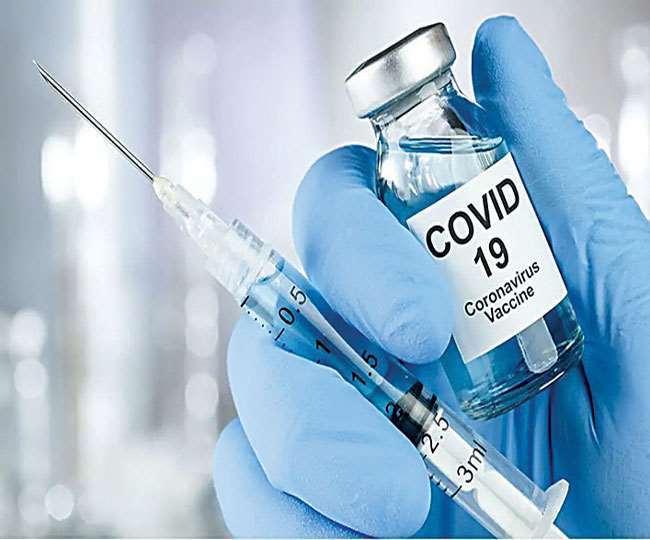Manas Dasgupta
NEW DELHI, Sep 16: The restrictions imposed on the trial of the Oxford University- produced Corona vaccine has been lifted with the Drug Controller General of India giving a green signal to the Pune-based Serum Institute of India to resume the second and third level trials, again raising hopes of an early arrival of a safe vaccine in the Indian markets.
Lifting the September 11 ban on the further trial of the vaccine, the DCGI has also permitted the manufacturer to pick volunteers for the further trials of the vaccine.
The ban was imposed after the United Kingdom-based drug manufacturer AstraZenca, which was given the contract for producing the vaccine developed by the Oxford University, stopped world-wide trial of the vaccine following some suspected adverse reactions to a young volunteer in the UK though the company had claimed that the ailment was not directly-related to the vaccine.
The Oxford-AstraZenca vaccine was being tried at 17 centres in India and the results of the first level trial was found “very encouraging” and suitable to Indian conditions, the company sources had claimed. In addition to India and the UK, the third level trial of the vaccine have been extended to the United States, Brazil, the three worst-hit by the pandemic including India, and several south American countries.
But despite the lifting of the ban on the trial of Oxford-AstraZenca vaccine, the health experts in the country are not very enthusiastic about an early solution to the pandemic, particularly reaching the masses in the country with the vaccine.
Several experts believe that even if the trials continued and completed in time and proved successful, it would not be before the first quarter of the next year that the vaccine could be produced and marketed. Considering that in the first line of the recipients for the vaccine would be the COVID warriors as had been planned and announced by the prime minister Narendra Modi, it would be not until the middle of the next year that the vaccine could be marketed for general public and it would take more than a year to cover the 130 crore population in the country on government-sponsored schemes.
Many of the Indian immunologists are also in talks with Russia, which has claimed having developed a Corona vaccine Sputnik V, for trial run in the India if it could compliment the Oxford University vaccine for early reach to the masses. It has garnered a lot of interest from veterinary and human vaccine maker Indian Immunologicals Ltd to potentially collaborate to mass manufacture it here. Sources said the talks were still not finalized and it involved an exchange of information on both sides to ascertain whether the Hyderabad-headquartered firm could successfully incorporate the Russian technology and scale up production here.
According to media reports, the company was exploring the option of manufacturing the Sputnik V vaccine in India after it got the requisite approvals. The company had received some information from Russia and was currently going through it but yet undecided whether the experiment would be successful.
“We have to see whether the technology can be successfully transferred to our platform and how much we can produce. We’re looking at the compatibility of what they have done, whether it fits with the equipment we have and at what scale we can produce this vaccine,” a senior official of the company was quoted as saying.
Sputnik V is a human adenoviral vector vaccine, which basically uses a genetically modified virus to carry the code for the cells in the human body to produce the spiky outer layer (spike protein) of the SARS-CoV-2 virus. This is expected to help the body recognise this spike protein as a foreign substance and build an immune response against it so that it can tackle the real virus when it tries to infect.
The vaccine was developed by Moscow-based Gamaleya Research Institute of Epidemiology and Microbiology and is the first Covid-19 vaccine to be registered, though phase three trials of the candidate had not been conducted when Russia approved the vaccine. Post-registration trials involving 40,000 volunteers are now underway there, while Brazil’s regulatory authorities are also expected to grant approvals following phase three trials.
Indian Immunologicals has so far earmarked a capacity to make around 20 million single dose vaccines for Covid-19, which could go up to 200 million if the vaccine is multi-dose, sources said. The Hyderabad firm also has an agreement with Griffith University in Australia to develop a live attenuated vaccine. The company official had stated in a panel discussion last month that human trials for that vaccine candidate were likely to begin in the first couple of months of 2021.
In a press briefing on September 8, Niti Aayog Member (Health) V K Paul had said the central government had been exploring the possibility of manufacturing Sputnik V in India when a scale up would be required. It had also been looking at conducting large scale phase there human trials of the vaccine in India, he had said.

